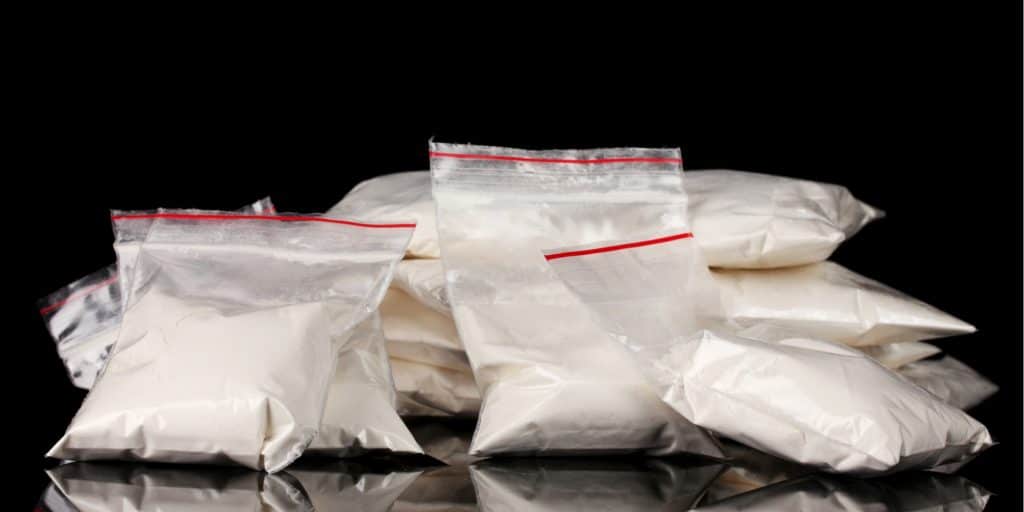
Did you know that if you freebase cocaine, you are not only at a higher risk for cocaine addiction and mental health problems, but you are also more susceptible to serious health risks like overdoses?
Here are five things you need to know about the dangers of freebasing, and how you can get help for your cocaine addiction today.
Table of Contents
1. Freebasing Cocaine Has Been Around for Decades

People who use cocaine take it in different forms. Powdered cocaine is the most common form of the drug, and users will snort the cocaine. Typically, the chemical makeup of cocaine prevents users from heating up the powdered substance and smoking it.
Cocaine has a high melting point of over 200 degrees Fahrenheit. It is highly flammable and water soluble because the main element in cocaine is hydrochloride—otherwise known as the cocaine base. Thus, while it is difficult to smoke cocaine, it is not impossible.
Freebasing, as it originated in the 70s, specifically involves the process of heating this form of the drug, which releases or “frees” the chemical hydrochloride from the pure cocaine so that users can smoke cocaine in its “clean” or pure form.
2. Freebasing and Smoking Crack Are Similar Forms of Cocaine Use
The unique thing about freebasing is that it changes the chemical construction of cocaine so that users can heat and smoke its pure form, usually through a glass pipe.
Because this form of the drug is highly flammable due to the hydrochloride, heating it up can be just as dangerous as actually using pure cocaine. If the cocaine catches fire, users risk hurting themselves or losing control of a fire.
Freebasing quickly evolved into a less flammable method in recent years with the introduction of baking powder to remove hydrochloride from the pure cocaine. This is why it is commonly called smoking crack, because of the sound it makes when heated.
3. Cocaine Abuse Causes Serious Long-Term Effects
The short- and long-term side effects of freebasing cocaine are dangerous. Some of the common health risks for short-term use include:
- Nausea
- Shaking
- Muscle spasms
- Perspiration
- Rapid heartbeat
Something important to remember is that freebasing cocaine directly impacts your lungs and respiratory system, which can make it more dangerous than snorting cocaine. Snorting cocaine affects your nose and sinuses, however, often resulting in long-term sinus issues and chronic nosebleeds.
In the cases of freebasing, long-term effects can be even more dangerous and put you at a higher risk for serious health conditions or even death. Common long-term effects of freebasing look like:
- Asthma
- Breathing/respiratory conditions
- Higher risk of infections, including pneumonia and blood diseases
- Heart failure
Additionally, because cocaine disturbs your brain’s natural production of serotonin and other important hormones, you might experience serious mental health struggles in addition to physical complications when freebasing.
Increased anxiety, paranoia, depression, and addiction are all common mental health issues that occur during situations of substance use with cocaine, especially in such strong forms of the drug.
4. Freebasing Puts You at Higher Risk for Addiction and Cocaine Overdose

Smoking crack or freebasing crack cocaine is popular for people who are addicted to cocaine because it has stronger “highs” when taken in this form.
But this is exactly why freebasing cocaine is more deadly.
In addition to the potency of cocaine, a lot of times users receive a form of the drug that they think is pure cocaine but is in fact mixed with other dangerous substances, such as fentanyl or synthetic opioids.
This makes freebasing much more potent, leading to drastic increases in cocaine overdose and the rate of cocaine addiction. When you don’t know what you’re putting into your body, there is no way to stay safe.
With any form of drug use, especially when using pure cocaine or freebasing, you need to be aware of the dangerous side effects as well as the symptoms of addiction.
Symptoms of cocaine addiction include:
- Frequently seeking out the drug
- Participating in risky behavior (such as stealing or unprotected sex) while using the drug
- Feeling antsy or uncomfortable when not under the influence of cocaine
- Rapid deterioration in behavioral, emotional, and physical health
5. Recovery from Cocaine Addiction Is Possible
The addictive qualities of cocaine, especially in its pure form, can be extremely hard to overcome. However, recovery from cocaine addiction is possible.
There are different types of addiction treatment that might best serve your individual needs. At the Vance Johnson Recovery Center in Las Vegas, Nevada, we offer different types of addiction treatment programs depending on your addiction experiences and recovery goals.
Additionally, we focus on assisting you from the physical and emotional effects of cocaine addiction and other forms of drug or alcohol use. To do this, we offer:
- Substance use disorder counseling
- Cognitive behavioral therapy (CBT) skills
- Group counseling
- Peer support
- Resources to maintain recovery
- Supplementary care like yoga and tai chi
- Chronic pain accommodations
Start Your Recovery Today
Reach out to us by phone at 888-828-2623 or take the first step by filling out our confidential form online.
Freebasing cocaine can make it difficult to start recovery. But you have the strength to make a positive change in your life. Reach out to the caring staff at the Vance Johnson Recovery Center and we’ll help you begin on the path to healing.
The post Freebasing Cocaine: 5 Facts You Need to Know appeared first on Vance Johnson Recovery Center.
Source
Original Author: Vance Johnson Recovery Center

